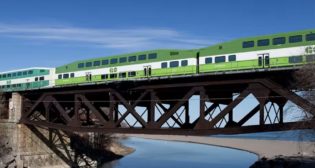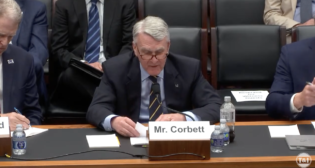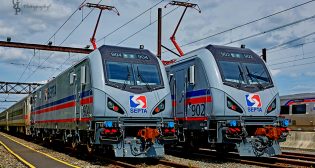
Alstom Lands SEPTA Order for 130 LRVs
Written by Marybeth Luczak, Executive Editor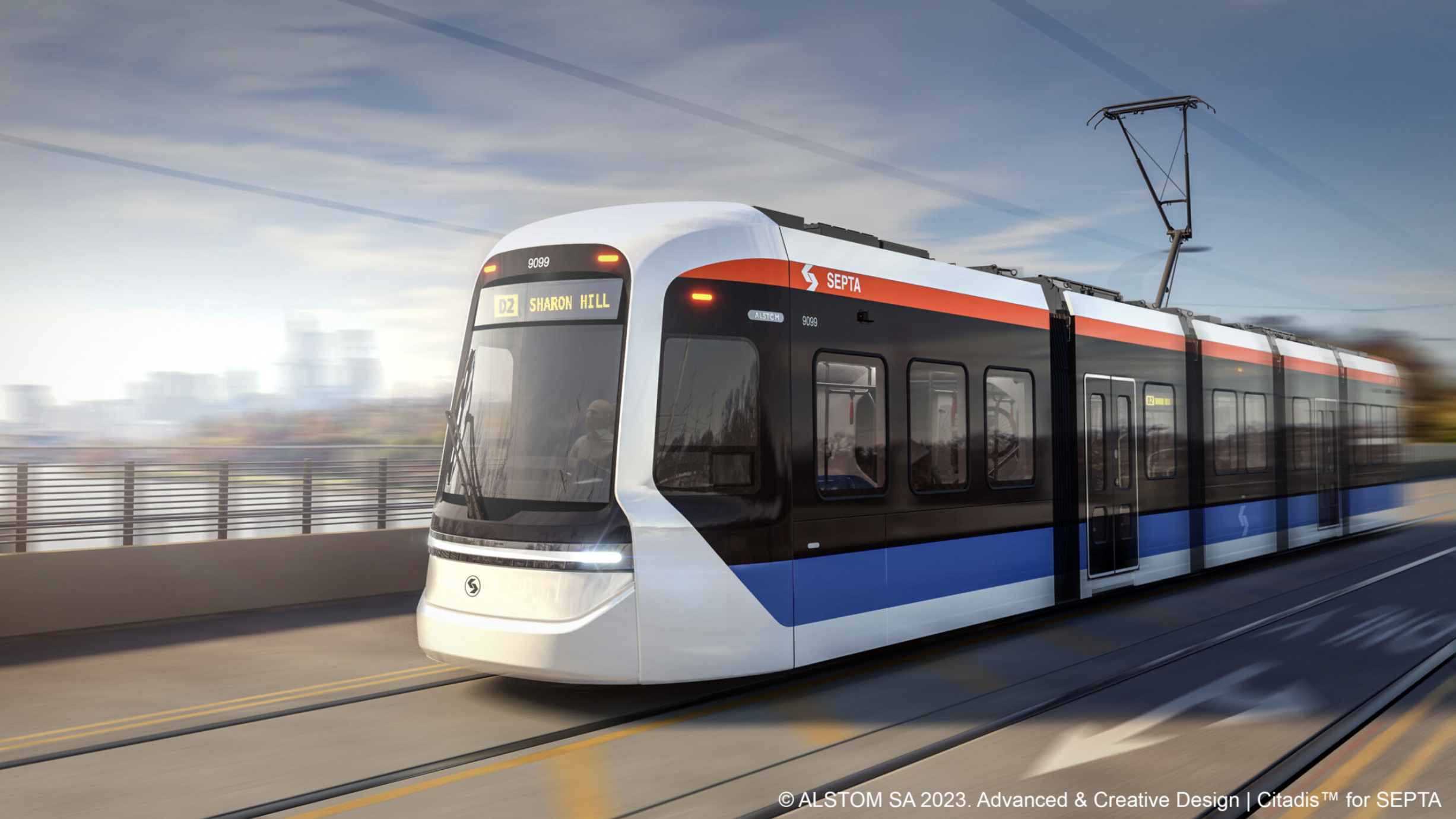
Alstom will provide 130 trolley vehicles to SEPTA to replace the existing fleet, which has served riders since the 1980s.
Southeastern Pennsylvania Transportation Authority (SEPTA) on Feb. 23 awarded a contract to Alstom Transportation, Inc., for 130 new Citadis™ light rail vehicles, with an option to order up to 30 more. The base order is valued at approximately $714 million.
The move—part of SEPTA’s Trolley Modernization program “to transform the nation’s largest trolley network into an accessible, fast and easy-to-use system”—will replace the Authority’s existing fleet, which has served riders since the 1980s. The contract follows the Request for Proposals (RFP) release in May 2022.
The new Alstom LRVs will be longer and have higher capacity to move more riders, according to SEPTA, which noted that they will feature low floors and ramps; wider pathways; audio and visual messaging systems to communicate upcoming stops and service changes; and designated open space for wheelchairs, walkers, strollers and bicycles. Deliveries are expected to begin in 2027 and wrap up by the end of 2030.
Together, SEPTA’s eight light rail lines run for 68 miles and connect communities in west Philadelphia, southwest Philadelphia, north Philadelphia and Delaware County directly with the region’s two largest employment and healthcare centers, Center City and University City (see map below).
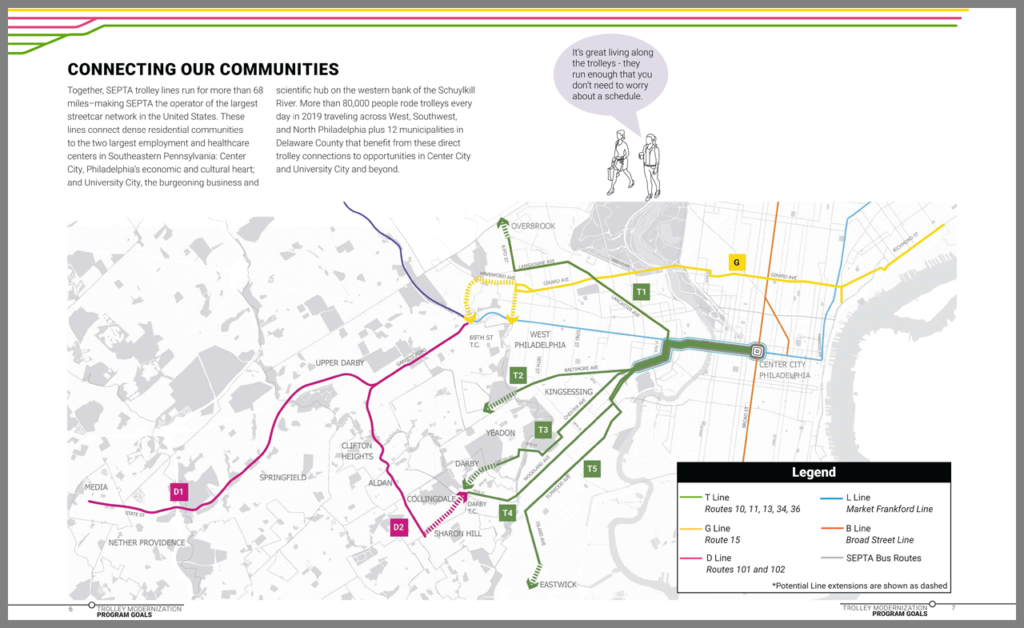
SEPTA also said it is building on-street stations to serve the new LRVs; rebuilding underground stations to be fully accessible; “making significant operational and infrastructure improvements” and extending some trolley lines to key locations to make connections to other SEPTA services easier; and working on new and improved maintenance facilities to serve the new fleet.
“SEPTA is committed to ensuring our trolleys meet the needs of all riders—people with disabilities, seniors, families with small children, new users, and anyone who needs a little more help to get where they are going,” SEPTA General Manager and CEO Leslie S. Richards said. “SEPTA is still seeking more than $800 million in competitive grants, and state and local funding, to make all the improvements necessary for seamless boarding. We are doing everything we can to move this project forward, but we need to secure new options for funding to leverage the once-in-a-generation infusion of federal dollars.”
According to SEPTA, funding for Trolley Modernization comes from its Fiscal Year 2023 Capital Budget and 12-Year Program. According to the budget (scroll down to download): “SEPTA is committing a total of $1.15 billion for Trolley Modernization. These capital funds allow SEPTA to advance early action trolley infrastructure design and construction for the $1.85 billion Trolley Modernization program. The new ADA accessible vehicles will require a complex and closely interrelated series of infrastructure upgrades in areas such as communications, signals, power, ADA stations, bridge improvements and maintenance facilities.” Budgeted is $770 million for trolley vehicles and $383.22 million for Trolley Modernization infrastructure.
In addition to Trolley Modernization, SEPTA said its Capital Program advances several other initiatives, such as King of Prussia Rail (KOP Rail).
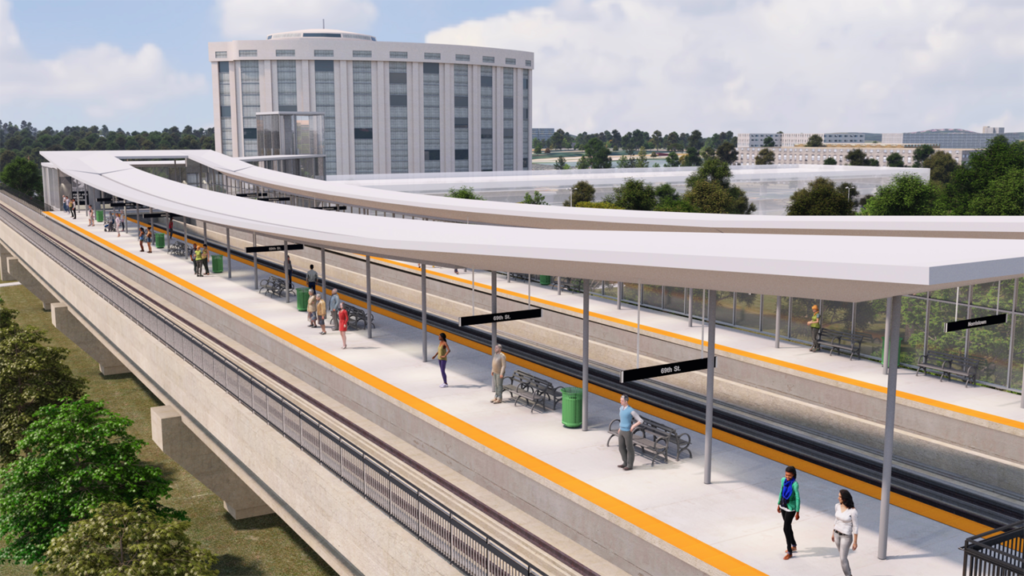
The 2023 budget commits $390 million to advancing this $2 billion project, which will extend the existing Norristown High Speed Line (NHSL) four miles into King of Prussia, providing a “one-seat” ride from any station along the NHSL, including 69th Street Transportation Center in Upper Darby and Norristown Transportation Center. SEPTA on Feb. 23 awarded a consultant contract to HNTB Corporation for the final design phase, following the RPF release in May 2022.
The total contract amount for Basic Design and Construction Documentation (Phase A) and Construction Related Services (Phase B) is approximately $125 million.
According to SEPTA, the contract with HNTB “will progress the engineering and architectural design from 30% to final design, which is required for the project to be eligible for Federal Transit Administration [FTA] New Starts Capital Investment Grant funding.” The Authority said will seek a Capital Investment Grant to support up to 60% of the total KOP Rail project cost.
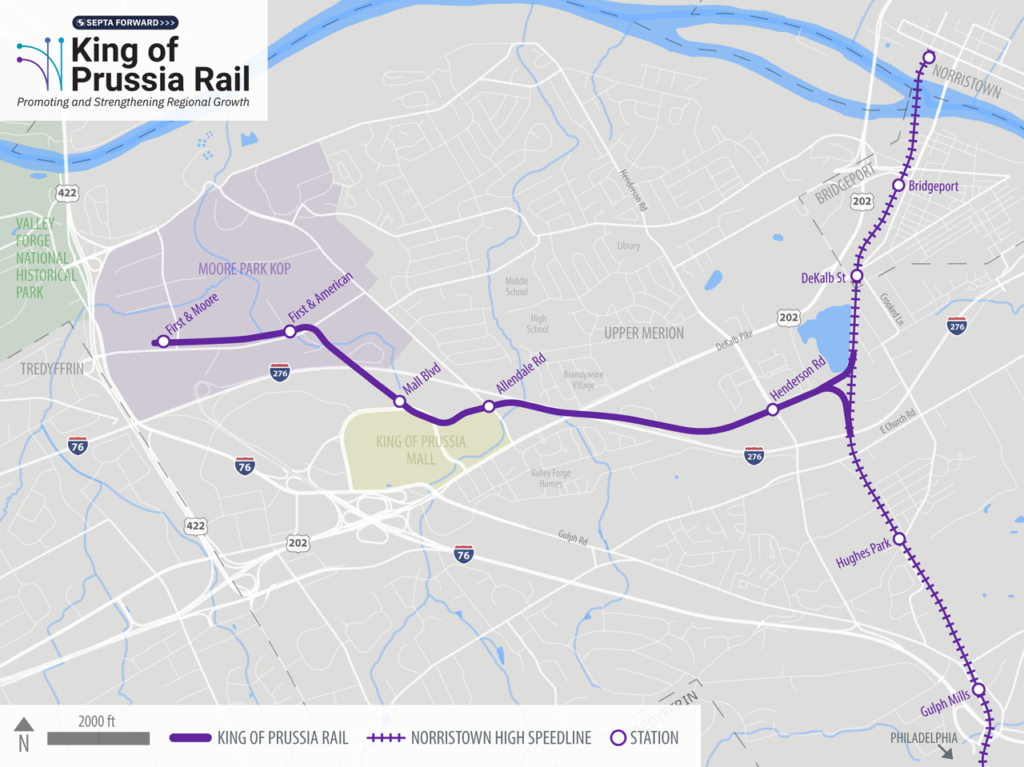
In October 2021, KOP Rail entered the Project Development Phase of the FTA’s Capital Investment Grant program. (It was issued a combined Final Environmental Impact Statement/Record of Decision by FTA in January 2021.)
Construction is slated to start in 2025 if full funding is secured.
“The future of KOP Rail is contingent on the significant state and local resources that are needed to leverage potential federal investments,” Leslie S. Richards said. “Adequate state and local funding is critical to advance SEPTA’s capital projects, and investing in transit is an investment in our region and the entire commonwealth of Pennsylvania.”
DOWNLOAD THE FISCAL YEAR 2023 SEPTA CAPITAL BUDGET:
